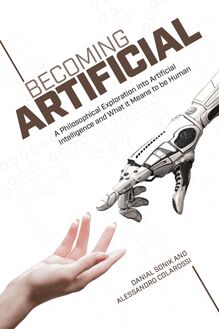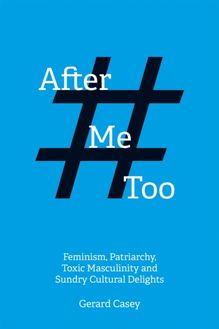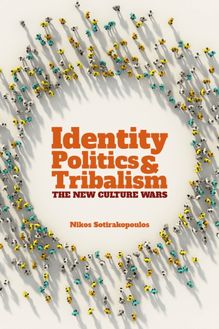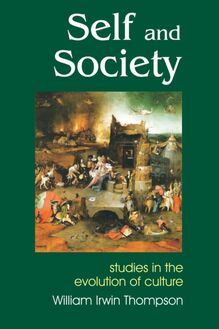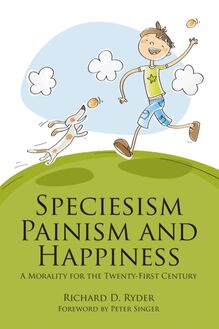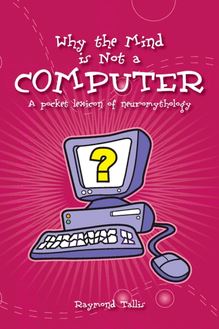Speciesism, Painism and Happiness , livre ebook
79
pages
English
Ebooks
2017
Vous pourrez modifier la taille du texte de cet ouvrage
Obtenez un accès à la bibliothèque pour le consulter en ligne En savoir plus
Découvre YouScribe en t'inscrivant gratuitement
Découvre YouScribe en t'inscrivant gratuitement
79
pages
English
Ebooks
2017
Vous pourrez modifier la taille du texte de cet ouvrage
Obtenez un accès à la bibliothèque pour le consulter en ligne En savoir plus
Publié par
Date de parution
16 janvier 2017
Nombre de lectures
2
EAN13
9781845405052
Langue
English
Publié par
Date de parution
16 janvier 2017
Nombre de lectures
2
EAN13
9781845405052
Langue
English
Speciesism, Painism and Happiness
A Morality for the Twenty-First Century
by Richard D. Ryder
Foreword by Peter Singer
SOCIETAS
essays in political
& cultural criticism
imprint-academic.com
2017 digital version converted and published by
Andrews UK Limited
www.andrewsuk.com
Copyright © Richard D. Ryder, 2011
The moral rights of the author have been asserted.
No part of this publication may be reproduced in any form without permission, except for the quotation of brief passages in criticism and discussion.
Societas
Imprint Academic, PO Box 200, Exeter EX5 5YX, UK
Foreword by Peter Singer
It is a pleasure to introduce a new philosophical work by Richard Ryder, one of the founders and key figures of the modern animal liberation movement. I first came across Richard’s name in 1970, when I was a graduate student in philosophy at the University of Oxford. Through Richard Keshen and then Roslind Godlovitch, I had begun entertaining the thought that our attitudes and practices regarding animals are ethically indefensible. An important part of this new way of thinking about animals was that there is a parallel between the attitudes most of us have towards animals, and the racist and sexist attitudes that almost everyone now rejects. For the attitude to animals that parallels racism and sexism, we had a new word: ‘speciesism’. The term came from a leaflet that Roslind showed me. To catch the attention of passers-by, it had a picture of an utterly miserable-looking chimpanzee, who had been infected with syphilis for experimental purposes. But it was the heading - the word ‘speciesism’ - and the text below the image that made a powerful impression on me. In the text Ryder pointed out that it was selfish of us to think that benefits for our own species justified inflicting misery on other animals. Suffering is, he argued, a clear moral criterion of something bad, and it does not depend on species membership.
This view fitted well within my own broadly utilitarian ethical framework. After all, Jeremy Bentham, the founder of utilitarianism, had written, with regard to animals ‘The question is not, Can they reason? Nor, Can they talk? But, Can they suffer?’ (This is now often referred to as Bentham’s ‘famous footnote’ but in 1970, it was not famous at all - it was substantially overlooked in philosophical discussions of Bentham’s work.) How could suffering be less morally significant simply because it was the suffering of a being who is not a member of our species?
I got in touch with Richard, who was also living in Oxford and we soon met. That began a long friendship, and a long debate about ethics. We agreed on what I still think is the most critical point, the one on which myself, Ryder, Tom Regan and practically everyone in the animal movement agree: that a difference of species alone cannot provide an ethically defensible basis for giving the interests of one individual more weight than the interests of another. Some twenty years after Richard published his ‘Speciesism’ leaflet, the philosopher Colin McGinn, writing in The London Review of Books described this as ‘a won argument’. Most philosophers today, at least in the English-speaking world, would agree with that statement. It is a remarkable transformation of thought, sufficiently radical to be aptly described as a ‘revolution’ - as Richard did describe it in his chronicle of those changes, intellectual and practical, Animal Revolution: Changing Attitudes Towards Speciesism .
Not content with coining the term that sums up what the animal revolution is about, Richard has also played a major role in the practical side of that change, both in reforming the venerable Royal Society for the Prevention of Cruelty to Animals and, perhaps even more significantly, played a leading role, together with the Labour peer Lord Houghton, in making the treatment of animals an issue in electoral politics in the United Kingdom.
Despite our agreement on the issue that divides speciesists from non-speciesists, and our further agreement that pain is a bad thing, Richard and I disagree on a deep ethical issue. What are we to do if the only way to prevent pain to many is to inflict pain on one?
Suppose that the only way to find a cure for a disease that brings suffering and death to millions of humans is to infect a small number of animals with the disease. (This is, of course, a fantasy - in real life experiments on animals can at best offer a small hope of leading, over many years, to a cure for a major disease, and often other methods of research that do not inflict suffering on animals are equally promising.) Repugnant as it would be to inflict on any animal a disease that would cause it to suffer, if there were no other way of finding a cure for the disease without inflicting it on an animal, we would, on my utilitarian view, be justified in doing that experiment, because it would lead to an immense reduction in the number of beings suffering, and in the amount they suffer. This is not a speciesist view, because the experiment could even be justified if the animal in question were a member of the species Homo Sapiens . If the member of our species were at the same mental level as a nonhuman animal, and there were no other ethically significant differences, such as the concerns of relatives, then, on a non-speciesist view, there is no reason for thinking it better to use the nonhuman animal than the human.
Richard disagrees, for reasons he explains and defends in this volume. I urge you to read it. I cannot say that I am persuaded by the ‘painism’ part of his argument, but I do believe that anything Richard writes is worth reading with thoughtful and sympathetic attention.
Princeton University
January 2011
For Barbara
Acknowledgements
I would like to thank Audrey and my children Emily and Henry for encouraging me, Penny Merrett for doing all the real work in the preparation of the manuscript, and Anthony Freeman and Keith Sutherland for being such helpful publishers. I am also grateful to various philosophers with whom I have discussed my ideas over the years and who have helped me to sort them out, including Stephen Law and Julian Baggini and Professors Peter Singer, Tom Regan, Andrew Linzey, Desmond Morris, Harvey Green, John Gray and Anthony Grayling.
Summary
The modern world needs a new morality that is consistent with science and the implications of Darwinism. Painism provides such a morality and is based upon the central idea that it is usually wrong to cause suffering to others. All things capable of experiencing suffering should be included within the scope of such a morality. To exclude nonhuman animals is to be guilty of speciesism -a prejudice that is no more justifiable than racism or sexism. It is argued that painism should also form the moral basis for government and legislation.
A striking feature of the new theory of painism is that it challenges both utilitarianism and democracy by insisting that pains, pleasures and happiness cannot meaningfully be totalled across individuals. So there is no justification for causing pain to one individual for the mere convenience of many. This opens up a range of novel possibilities and, by bridging Utilitarianism and Rights Theory, creates a fresh and unified moral outlook.
1. The Quest for Happiness
Much of the modern world has no coherent moral policy. There is little exact agreement about what is right and wrong. Moral principles derived from half a dozen great religions conflict and mingle with those drawn from a handful of secular theories. Legislation reflects this confusion and much of Western politics in the twenty-first century, if based upon morality at all, has become a hotchpotch of old religious principles and an odd and incompatible alliance between Utilitarianism and Rights Theory. There is an urgent need to find a more consistent and unified approach to morals and legislation generally . This book tries, and I hope not too presumptuously, to provide one possible solution that takes into account the progress of science and the moral implications of Darwinism. This first chapter raises questions about morality and happiness; the last chapter tries to provide some answers.
The popularity of the BBC’s radio programme The Moral Maze has underlined our fascination with morality as well as the difficulties of the subject. Some of these difficulties arise because we no longer have one moral theory to follow, but many. Contributors to the programme have been deliberately picked so as to reflect differing religious and political positions. Sadly, the BBC has shown itself to be rather old-fashioned on moral matters. For years the moral ‘Thought for the Day’ on its leading Today programme has been given by religious rather than secular speakers and by journalists rather than by ethicists. Over the years it has often been as though the BBC did not realise that Ethics is a well defined academic subject nor been unaware that secular ethical theories, going back to the days of ancient Greece, are formidable additions to the religious positions that their programmes have over-emphasised. As a first step, we need to accept the idea that morality can exist without god . Supposed divine approval is, as we shall see, both an unnecessary and an unsatisfactory basis for morality.
Morality remains a challenging subject and there are few easy answers. Some of us have been trying for years to find new solutions to the well established moral conundrums. The old traditional solutions don’t quite work. But we all continue to need a straightforward and internally consistent morality, and that is what I am attempting to supply in this volume. In this first chapter I

